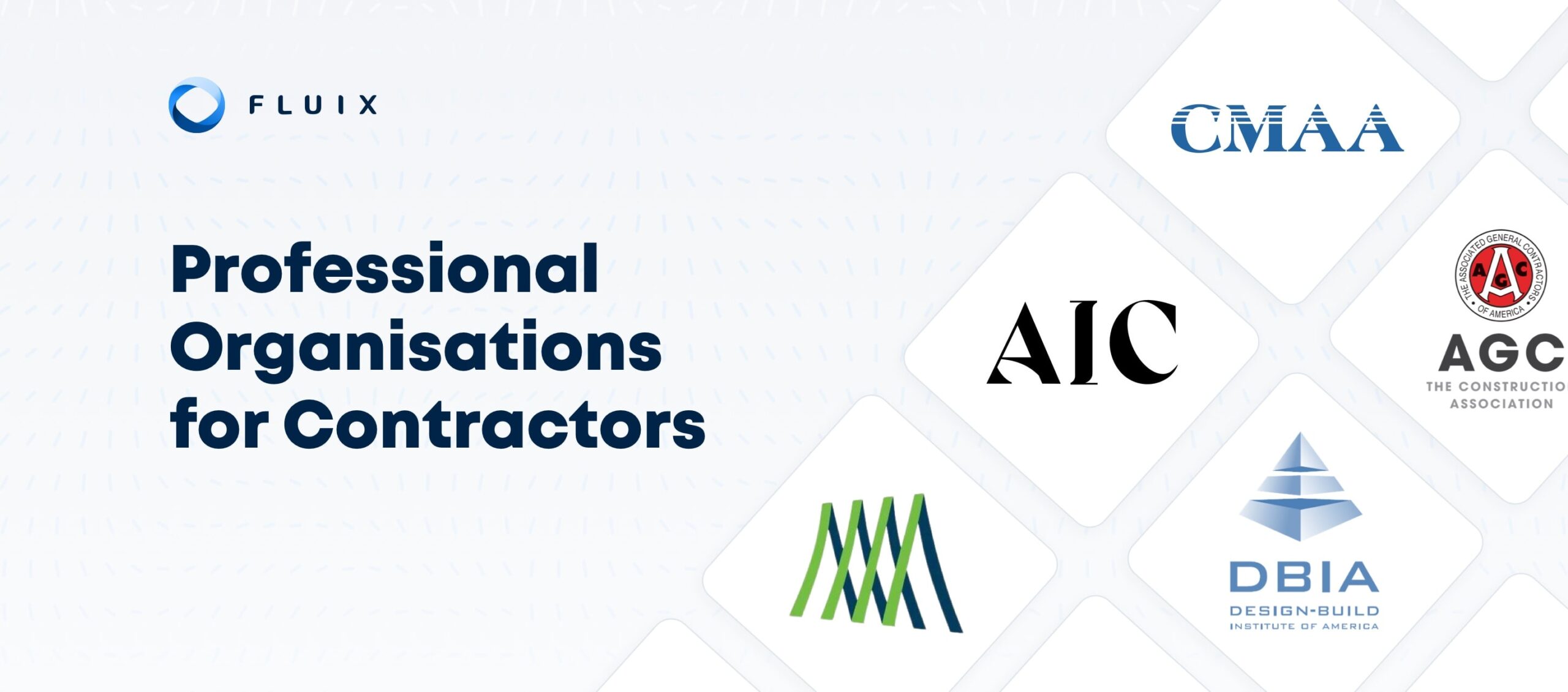Whether you’re new to the world of construction or you’re a senior construction professional, professional associations offer several tangible benefits to their members. Local chapter meetings provide opportunities for networking and socializing, especially between contractors, consultants, and owner representatives. Some of these contractor associations sponsor events that provide training for young professionals, as well as continuing education for licensed professionals.
These groups also facilitate the exchange of industry information, new ideas, and innovative approaches to construction project management. Many different types of construction organizations exist, including general groups and those with a niche focus. Here are five organizations that you should consider for membership.
1. Associated General Contractors of America
Founded in 1918, the Associated General Contractors of America represents one of the largest contractor associations, encompassing over 6,500 general contractors and over 9,000 companies that offer specialized contracting services. More than 10,500 suppliers and service providers are also affiliated with this organization. Headquartered in Arlington, Virginia, the AGC was originally formed to address construction concerns during World War I.
As one of the premier professional organizations for construction management, the AGC advocates for the needs and concerns of the construction industry, especially as they relate to industry standards and public interest.
This association sponsors local, regional, and national conferences, webinars, and other events for networking, education, and professional development, which run the gamut of focus areas within the construction field. AGC membership has something to offer for anyone working in any area of the industry.
2. American Institute of Constructors
The American Institute of Constructors is a construction society that offers certifications to construction professionals. Architects and engineers have certification programs that promote excellence and high standards within those fields.
The AIC is committed to the same for construction. For over 50 years, this organization has offered a constructor certification program that validates the knowledge and experience of construction leaders by examination and continuing education in three areas:
- Associate Constructor (AC): The first level of certification of the AIC Constructor Certification Program
- Certified Professional Constructor (CPC): The highest level of certification within the program
- Recertification: Continuing professional development for Certified Constructors
The AIC offers paper and pencil exams, as well as computer-based exams, for both certification levels. Membership in the AIC is recommended for contractors who are interested in credentials.
Top Construction and Engineering Podcasts to Follow
Selection of industry podcasts that help contractors get updates, exchange industry news, and build networking.


3. Construction Management Association of America
Formed in 1982, the Construction Management Association of America is one of the foremost professional organizations for construction management. With over 14,000 members affiliated with 29 chapters, it is one of the largest and most diverse construction organizations.
It includes public and private sector construction owners, corporate members, construction management and program management professionals, and academic and associate members. Two notable focuses for the CMAA are the Construction Management Standards of Practice and the Certified Construction Manager certification.
Standards of Practice
For almost 40 years, the CMAA has detailed and published standards for professional construction management services in several practice and knowledge areas:
- Building information modeling
- Contract administration
- Cost management
- Program management
- Project management
- Quality management
- Risk management
- Safety management
- Sustainability
- Time management
The most recent version of the SOP was issued in 2015.
Construction Management Certification
The CMAA established a voluntary certification program for the construction professional working in management, and enacted oversight to meet the growing demand for credentialed managers.
Analogous to licensure for architects and engineers, the Certified Construction Manager certification requires at least four years of construction oversight experience, as verified by the recommendations of past clients or owner representatives. What qualifies as working experience varies with respect to an applicant’s educational background:
- A bachelor’s or master’s degree in construction management, construction science, architecture, or engineering
- A two-year degree or certificate in the above disciplines and an additional four years of experience in construction or design
- No degree or certificate and an additional eight years of experience in construction or design
Applicants must pass an examination to become CCMs. Joining the CMAA is especially recommended for those who work in construction management.
4. Design-Build Institute of America
The Design-Build Institute of America is an organization of architecture, engineering, and construction professionals that advocates for design-build construction. This alternate project delivery has been growing in popularity since the 1990s.
Instead of traditional design-bid-build delivery, where a project is designed and built by separate entities, design-build projects are executed by partnerships of contractors and designers, providing improvements in constructability, scheduling, and project funding.
The DBIA sponsors conferences, training seminars, professional certifications, and publications for best practices. Membership is recommended for professionals who currently work in, or desire to work in, the design-build space.
5. National Institute of Building Sciences
This non-profit, non-governmental organization is a collective of construction professionals, government representatives, and regulatory agency members who identify and resolve problems associated with providing safe and affordable structures for residential, commercial, and industrial use.
Authorized by the U.S. Congress in the Housing and Community Development Act of 1974, the National Institute of Building Sciences also publishes standards and publications for building information modeling and computer-aided drafting. Consider joining the NIBS if you’re interested in the intersection of government and the construction industry as it relates to developing and promoting best practices.
Professional construction organizations are a great way for individuals, government entities, and businesses to connect and collaborate for the good of the industry. The chapter meetings, conferences, and seminars facilitate the exchange of ideas, advocacy for improved practices, and deployment of new technology or construction software like Fluix.







